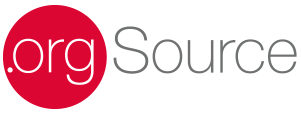Grounded in Tradition and Focused on the Future, A Conversation With Richard Yep, CAE, FASAE

I love talking with executives who see the association industry through a wide lens. My recent podcast guest, Richard Yep, is one of those people. Richard is a visionary thinker whose opinions are filtered through years of experience.
Richard draws on four decades of experience in the association community. For 30 years, he served as CEO at the American Counseling Association (ACA). Currently, he is the founder of Ocean Vista Advisors, a consulting firm that supports professional associations. He is also vice president at Vetted Solutions, an executive recruitment firm based in Washington, DC. Much of his consulting relates to DEI, governance, and facilitation of strategic priorities.
“I’m enjoying this new chapter in my career,” Richard says. “I’ve always loved mentoring and helping other association professionals to advance. I knew there was a lot of talent out there, But being exposed to so many incredible association management professionals in my work gives me hope and confidence in the future of our industry.”
Work-Life Integration
If you follow my posts, you know that I frequently write about integrating emotional intelligence into organizational culture. Effective CEOs strike that critical balance of growing the business, developing their employees, and ensuring that the workplace promotes emotional safety and wellness. I was interested to hear Richard’s thoughts on that idea.
“With the advent of COVID, remote work, and increasing outside competition for market share, I advise CEOs to concentrate on three areas,” Richard advised. “They need to create an open culture, design a flexible work environment, and keep an eye on industry challenges as well as social issues.
“We used to be able to separate our home and work lives. Those days are gone. CEOs and other leaders in associations must learn to understand and address work-life integration. I use the “word” integration deliberately because those two aspects of our lives have merged.”
Even for someone who has worked from home for many years, the post-COVID culture takes some adjustment. I asked Richard questions I frequently ask myself—Were we always moving toward this new version of work? Did COVID just make us arrive sooner? And, is the work environment continuing to change? What shifts should we prepare for?
Evolving Roles
“COVID definitely accelerated change,” Richard responded. “It wasn’t learning to use technology remotely. The sudden freedom and flexibility were a shock to the system. Remote work wasn’t a new idea. But it was like learning to drive on a Formula One race car. Suddenly you are behind the wheel of this amazing, fast vehicle.
“The good news is we’re learning how to make the current circumstances beneficial for our organizations. For example, several groups made the unfortunate choice of moving into bigger headquarters offices in early 2020. Now they are paying for more space than they need. Some have found creative solutions, but many are still searching for answers. We’re all figuring things out.”
“It’s a good news, bad news situation,” Richard noted. “Experienced executives may be having a harder time than those who are new to leadership. CEOs who came to their positions during the pandemic are the newbies. They’re nimbler than those who have been working in the same way for 25 or 30 years. On the other hand, the more experienced group may never have faced a pandemic, but we do know about disruption.
“Most importantly, whether you’re new or an experienced leader, culture is going to trump productivity. When I work with CEOs, especially newer leaders, I encourage them to ask for feedback and promote collaboration. What got you to the C-suite is not going to take you to the next level. You are not going to be successful if you don’t listen to a variety of opinions, ideas, and advice from others.
“Promoting a collaborative environment and recognizing the importance of the team’s physical, mental, and social needs is also key to a healthy culture. Learning to bring empathy and emotional intelligence into your leadership style will earn the respect and loyalty of your colleagues. It’s a journey. Even in my last year at ACA, I was still discovering new ways to work with people, especially younger employees coming straight from college.”
Diversity, equity, and inclusion is a significant item on today’s cultural agenda. Richard specializes in helping organizations gain DEI proficiency, and I was interested to hear his thoughts.
“The for-profit world can teach associations important lessons about bottom-line issues such as productivity, sales, and market penetration. But I think the nonprofit community does a better job understanding and tackling the complexity of human relationships and the benefits of promoting DEI values,” Richard said. “When an organization is truly DEI-supportive, they demonstrate their willingness to tackle challenging questions and make choices that can be difficult; however, having those nuanced conversations opens us further to the idea that a variety of perspectives and demographics is needed to make sound judgments.”
I wanted to hear what someone who has a foot in the world of experience and an eye on the future thinks is in the cards for associations. How is their role in society changing? Is their influence expanding, contracting, or being reshaped? Will organizations need to revisit their missions or take on new roles and responsibilities?
“There is likely to be a contraction,” Richard responded. “Although we are in the 21st century, a lot of associations are operating with a 20th-century model. In the past, we didn’t refer to members as customers, right? But we’re not paying attention to the fact that, increasingly, that’s how they want to be treated. Members want what they need in real-time, delivered in their preferred format. And oh, by the way, they’re also good consumers, who are concerned about value.
“We never want to lose that special sense of community and camaraderie that an Association provides. But we need to be realistic. It’s no longer necessary to join a professional association to be part of your industry. AI and other significant technological and social issues are facing associations.
“For example, people are worried that AI is going to take their jobs away. I try to reframe that idea. I tell them that AI is not necessarily going to be doing their jobs. But the person who knows how to maximize the potential of AI and can use it to improve an organization might be. How you respond to innovation matters. And the associations that are adapting and changing the fastest are the ones that are going to succeed.”
The team at .orgSource embraces Richard’s perspective. If your group is interested in learning how to meet digital challenges or prepare for an updated version of success, book time on my calendar for a discovery call.
